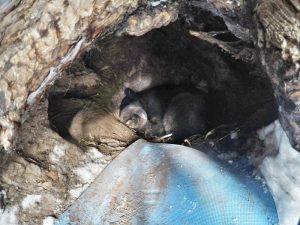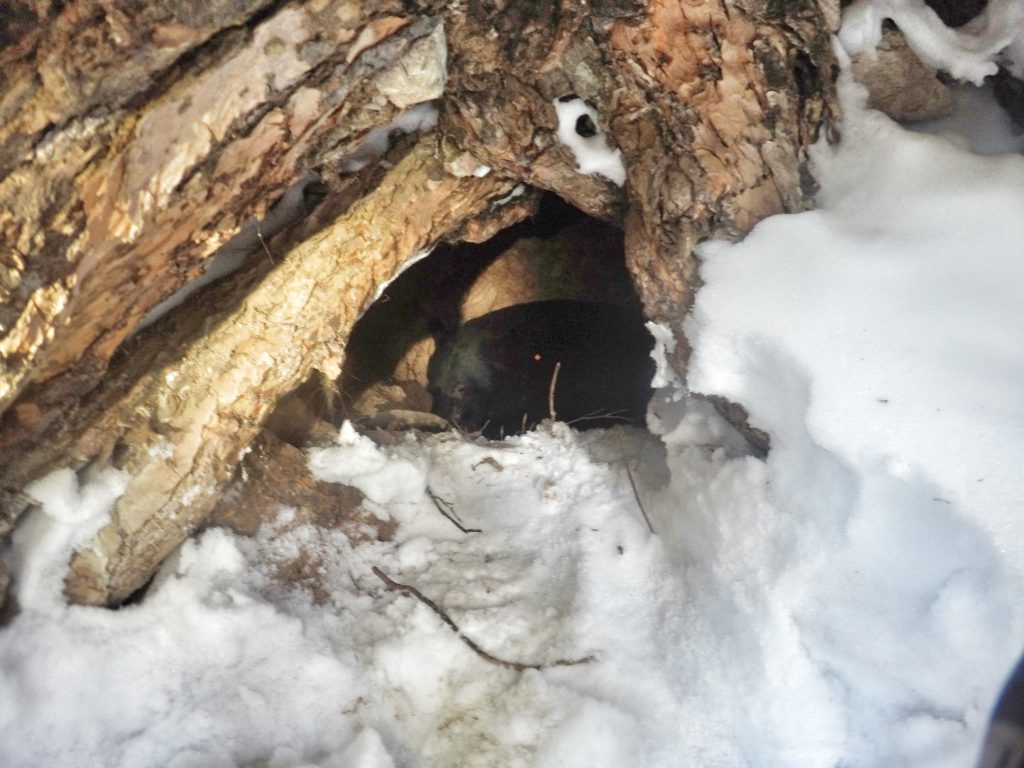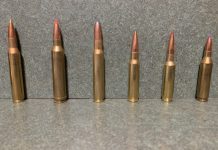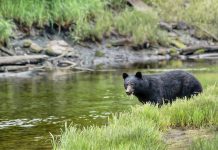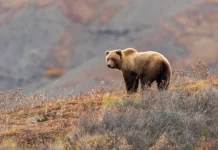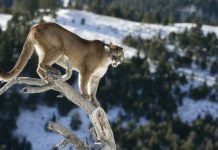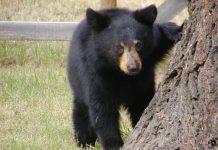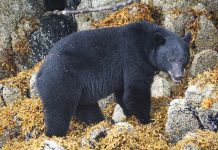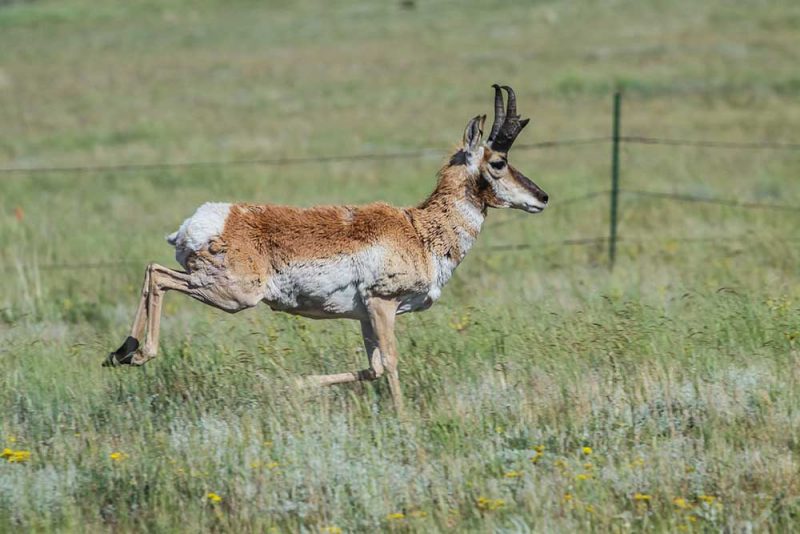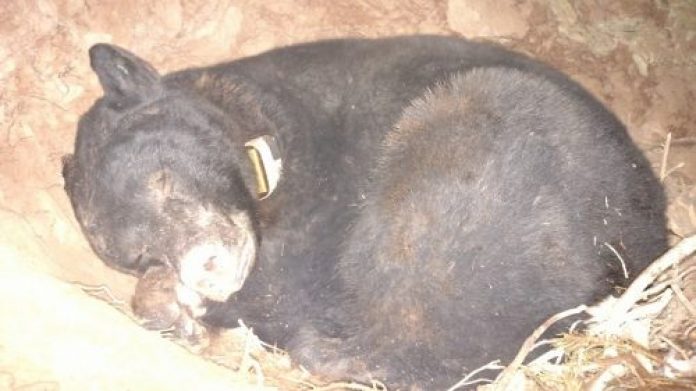
Right about now the bears in the Rocky Mountain west are fast asleep in their cozy hollowed out winter dens. Pregnant sows have recently given birth to little balls of fur and recent snows have blanketed the dens providing warmth and safety from the elements and other predators. The bears are now in deep resource management and now more than ever are the calories they packed on during hyperphagia in the fall coming into to play. Black bears will lose from 15 – 30% of body fat during their winter sleeping. Often times burning up to 4,000 calories per day!
So why do bears go to sleep for such long periods in the winter? Well simply put, SURVIVAL. Bears must take a long winter’s nap because of the scarceness of their food resources. If bears had to work all winter for food they would simply burn too many calories to survive the long mountain winters. The length of their winter slumbers often times depends on location. While many bears in the Northern Regions of the Rocky Mountains may stay in bed for up to 7 months, bears in Arizona may only go to bed for a few weeks. Many factors go into play but primarily it’s the availability of food that forces the bear underground for the chillier months.
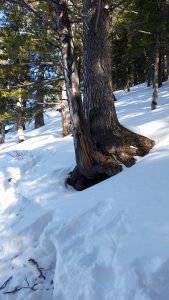
During torpor, the bear’s heart rate and metabolism both drop while body temperature increases or remains high. During hibernation, an animal’s body temperature also decreases along with its heart rate and metabolism. Also in torpor, the bear can wake up easily if hurt or threatened by predators. Pregnant female bears also wake up from torpor to give birth to new cubs and then go back to sleep. It is actually a proven fact that bears cannot truly hibernate like many smaller mammals. It’s because their body size is too big to release the heat needed to go into a true state of hibernation. Now that you have that life-altering information let’s look at some other facts about the black bear and torpor!
Torpor Facts
- The hormone leptin is secreted from the animal’s fat cells into their blood. This hormone regulates appetites in the brain and suppresses a bear’s appetite. In the spring the leptin levels decrease and a bear’s appetite begins to increase.
- Female Black Bears will birth cubs in the den and are mostly asleep during the process. The cubs nurse and sleep through the remainder of winter.
- During torpor bears cut the metabolic rate by 50–60 percent.
- Respiration decreases to 1 breath every 45 seconds during torpor, and their heart rate drops to 8–19 beats per minute
- In a remarkable and rare process bears recycle their urine in the den and turn that urine into protein.
- Often times will gain lean muscle mass during torpor
- Suffers no loss in bone density in den
